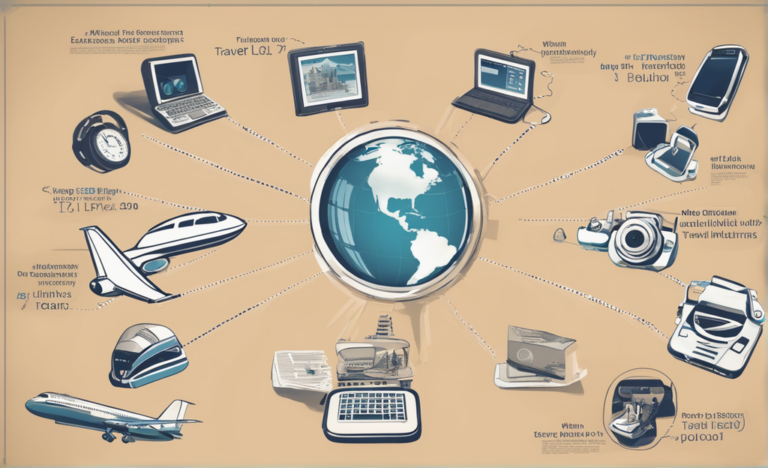Exploring New Horizons: The Rise of Virtual Reality in Travel Technology
Virtual reality (VR) is a rapidly developing technology that is having a major impact on the travel industry. VR allows users to experience realistic simulations of different environments, which can be used for a variety of purposes, including travel planning and marketing.
How VR is used in travel
VR is being used in the travel industry in a number of ways, including:
- Virtual tours: VR tours allow users to explore different destinations before they book their trip. This can help travelers to make informed decisions about their travel plans and to avoid disappointment.
- Hotel previews: VR hotel previews allow users to see what different hotels are like before they book a room. This can help travelers to choose the right hotel for their needs and budget.
- Destination marketing: VR can be used to market destinations to potential visitors. For example, tourism boards can create VR videos and experiences that showcase the best that their destinations have to offer.
- Travel training: VR can be used to train travel agents and other tourism professionals about different destinations and products. This can help them to provide a better service to their customers.
The benefits of using VR in travel
There are a number of benefits to using VR in travel, including:
- Increased engagement: VR is a highly immersive technology that can capture the attention of users. This makes it an ideal way to promote and sell travel products and services.
- Enhanced understanding: VR can help users to better understand different destinations and products. This can lead to more informed travel decisions and a more enjoyable travel experience.
- Reduced costs: VR can help to reduce the costs associated with travel planning and marketing. For example, VR tours can be used to replace expensive physical brochures and videos.
The future of VR in travel
The future of VR in travel is very promising. As VR technology continues to develop and become more affordable, it is likely to play an even greater role in the travel industry.
In the future, we can expect to see more realistic and immersive VR experiences. We can also expect to see VR being used for more purposes in the travel industry, such as travel training, education, and entertainment.
How to create effective VR travel experiences
When creating VR travel experiences, it is important to keep the following tips in mind:
- Focus on quality: VR travel experiences should be of high quality, with realistic graphics and immersive audio.
- Make it interactive: VR travel experiences should be interactive, allowing users to explore different environments and interact with objects.
- Tell a story: VR travel experiences should tell a story that will engage users and make them want to learn more about the destination.
- Be informative: VR travel experiences should be informative, providing users with useful information about the destination, such as transportation options, accommodation, and attractions.
VR is a rapidly developing technology that is having a major impact on the travel industry. VR is being used in a variety of ways to promote and sell travel products and services, to train travel professionals, and to enhance the travel experience for consumers.
The future of VR in travel is very promising. As VR technology continues to develop and become more affordable, it is likely to play an even greater role in the travel industry.

